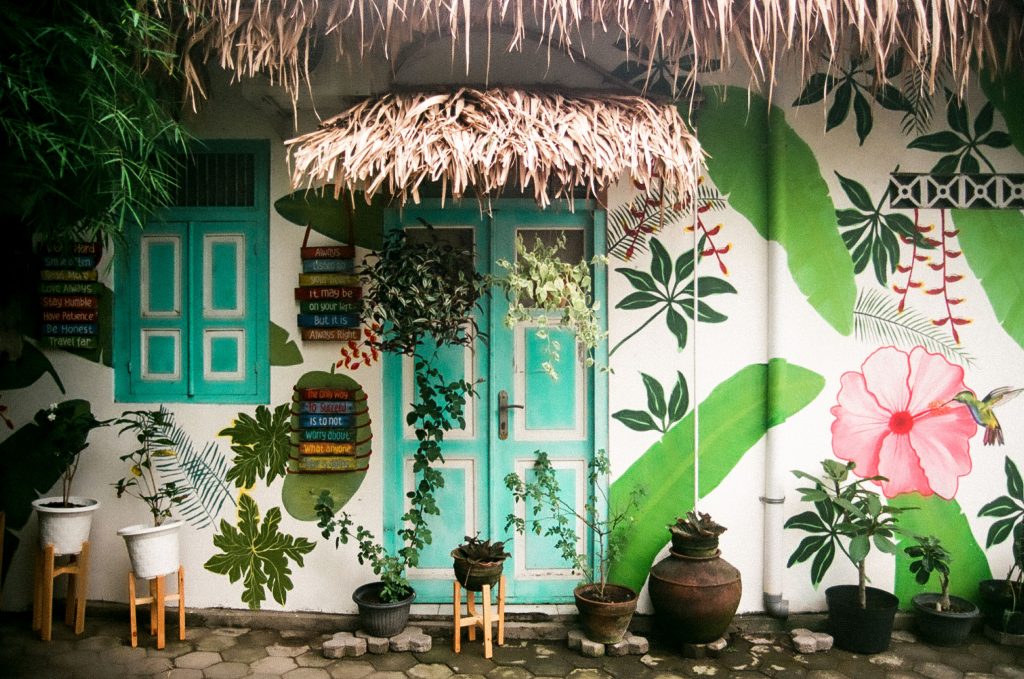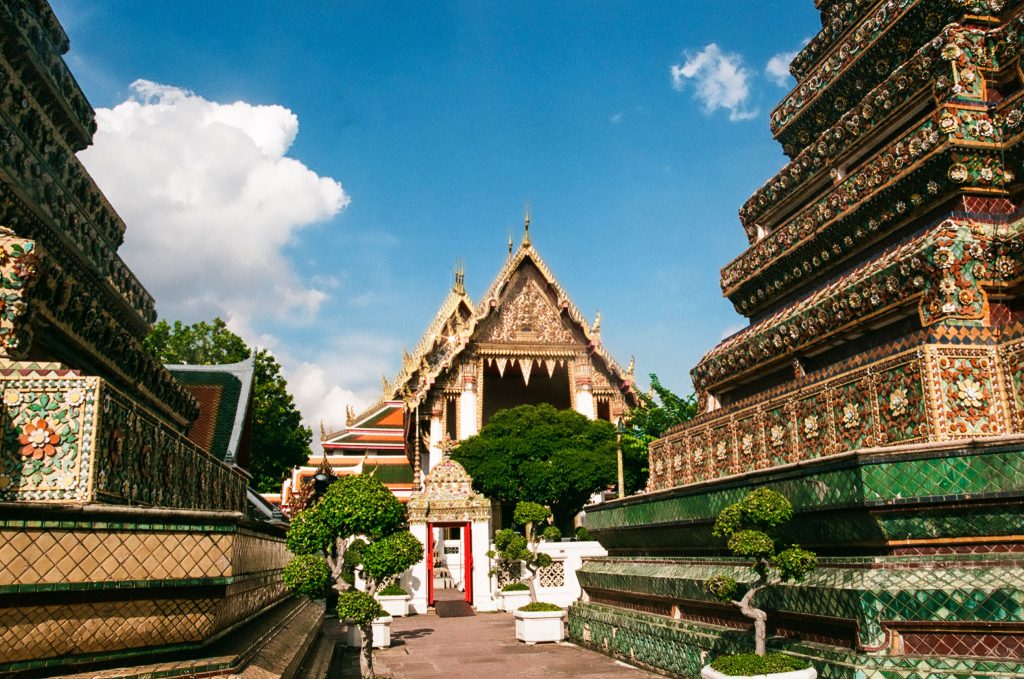
Prior to my 35-hour journey back to California, I downloaded four books, packed both of my journals into my purple Jansport backpack, and consolidated my floating thoughts onto an entry in my notes app. I was prepared to finally digest my experiences from a month in Thailand and Indonesia as I moved through airports and sat thousands of feet above the ground.
I absorbed, observed, and often felt uneasy with travellers like myself, constantly questioning my place in the spaces I was visiting. I recognised my immense privilege and wondered over and over again whether traveling can ever be ethical. I so badly wanted to enjoy myself but I couldn’t help feeling like I was exploiting a culture that is not my own, all the while the same question kept tossing and turning in my head; who and what was at the expense of my enjoyment and self-growth? While reading Nayyirah Waheed’s Salt, I came across a poem that provided insight:
decolonization
requires
acknowledging.
that your
needs and desires
should
never
come at the expense of another’s
life energy.
it is being honest
that
you have been spoiled
by a machine
that
is not feeding you freedom,
but
feeding
you
the milk of pain.
Waheed reminded me of the importance to think critically, to hold myself accountable, and to acknowledge the systems I am a part of and perpetuating. All roads led to the question, “Is ‘ethical traveler’ an oxymoron?” Travel is and has been, without a doubt, instrumental in dealing with my anxiety and proving to myself that I am capable of more than I let myself believe. It has helped me grow in more ways than I can express, but I struggle with the following question: at whose expense?
When thinking about my culture, my ancestors, and my past, it becomes even more complex. Traveling has always been something unattainable. It’s a luxury reserved for those not battling to make ends meet, for those able to leave the country without the fear of not being able to return. I see posts and articles encouraging gap years and post-grad trips for an indefinite amount of time, but rarely does it feel directed at me.
“are people of colour not traveling or are we just excluded from the narrative?”
Admittedly, it feels careless to neglect my responsibilities at home and spend money when I really should be making it. After seeing a mutual post about her one way ticket to Europe, my friend texted me asking, “Is this a white people thing?” It’s something I’ve thought about before and still ask myself: are people of colour not traveling or are we just excluded from the narrative? The question directs me back to a Code Switch episode that explored the relationship between people of colour and the outdoors. They discussed how being removed from certain narratives makes it difficult for people of colour to picture ourselves in those spaces, even if it’s something we truly enjoy.

My mum has always encouraged me to go, to explore and see what she never had a chance to. She reminds me that her hard work was fueled by the motive of providing me with wings so I could fly. “Llena tus ojos de lindos paisajes” [fill your eyes with lovely landscapes], she texted me one morning after I told her I was feeling uneasy and homesick. She reminded me that I’m allowed to learn and venture out and beyond. Traveling, however, is complex. We’re stepping into someone else’s home, so how can we include ourselves in these spaces while also being conscious of our presence?
“Travel needs women of colour, and women of colour need travel”
Platforms like On She Goes have given me the confidence to push myself out of my comfort zone, reminding me that we’ve had to justify our existence for far too long. Travel needs women of colour, and women of colour need travel. But, (emphasis on the “but,”) that doesn’t mean I can wander recklessly without taking into account where my feet land. The danger of embodying the full on “vacation mode” is failing to consider that one’s temporary stay is someone else’s permanent reality. We come and we leave, sometimes leaving it worse than before. For instance, during my first night in Pai, Thailand, two people from my hostel decided to drive their rented motorcycle while inebriated, resulting in a crash with a local. He’d have to take several weeks off of work because his shoulder was dislocated and his motorbike was now damaged as well.

So, in an effort to respect the energy of the places I visit, I did what I know best and made a list. Here are a few tips from someone who is not a professional (me):
Do your homework
Research. Learn the history of the country you’re visiting. Read, read, read. Google is your best friend!
Don’t bargain
Yes, you’ll be overcharged, but consider the exchange rate as well as the time and effort that went into what you’re purchasing. I tried to haggle a couple of times and it felt so uncomfortable especially considering I was speaking English.
Learn the language
It can come off as very entitled when we expect natives to speak the language of the foreigner. I’m also guilty of only learning a couple of basic words but not being able to communicate in the country I was a guest in made me feel the most intrusive. I really regret not putting in the time and effort to learn more.
Support local businesses
Stay in locally owned hostels and homestays and support local restaurants, travel guides, and companies.
Ask before taking pictures of people (or just don’t)
I enjoy taking pictures and brought my camera along but decided not to photograph people. I wanted to refrain from tokenisation and objectification of other cultures that are not my own. Instead, I drew in my journal (take a peek) and took a lot of pictures of local dogs and cats. This should really go without saying, but I’m baffled at how many times I saw it happen. Don’t laugh at different traditions, practices, foods, etc. Please.








